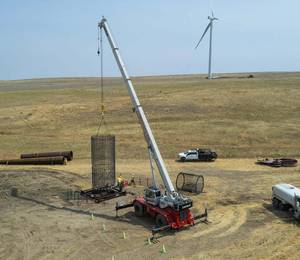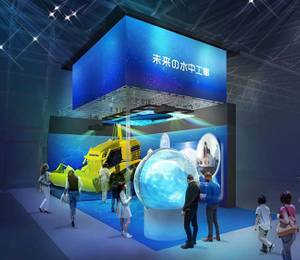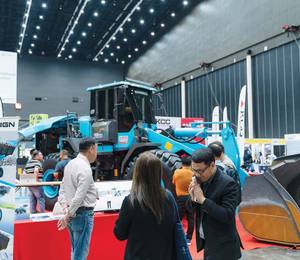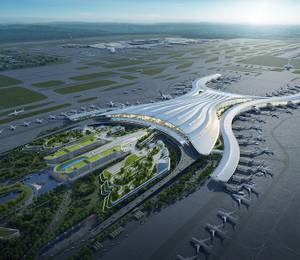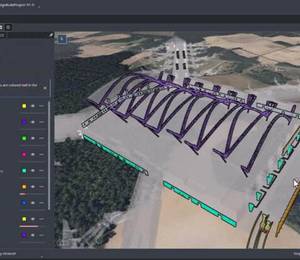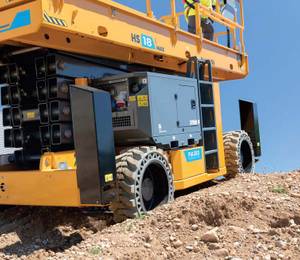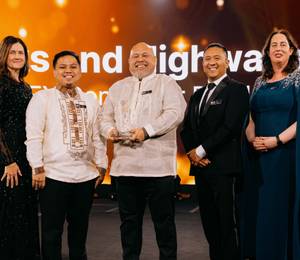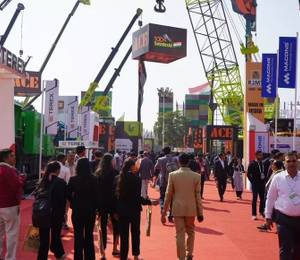Three professionals from Surbana Jurong have become the first Infrastructure Sustainability Accredited Professionals (ISAPs) in Singapore. These include: Eugene Seah, senior director, special projects; Jason Reeve, executive associate, sustainability and resiliency office; and Martin Lim, principal project manager, sustainability and resiliency office. All of them are now qualified to evaluate infrastructure assets ranging from roads and transport to utilities and waste management across the planning, design, construction and operational phases.
The accreditation was conferred by the Infrastructure Sustainability Council (IS Council), an industry body operating in Australia and New Zealand to enable sustainability outcomes in infrastructure. With this accreditation, Surbana Jurong will be able to measure and assess the economic, environmental, social and governance (ESG) impact of critical infrastructure in Singapore including roads, bridges, rail networks and utility structures in a more rigorous and structured manner using the Infrastructure Sustainability (IS) rating scheme.
Singapore is at the region’s forefront in setting sustainability benchmarks for buildings, but there is currently no over-arching methodology for the assessment of the environmental, social and governance (ESG) impacts of critical infrastructure assets including transport infrastructure, bridges, cabling and signalling systems, and water and waste management systems, explained Surbana Jurong. These assets are typically built over many years and require massive amounts of raw materials to build. The potential impact of these materials on the environment and the communities around which they are built needs to be measured, monitored and mitigated.
“There is a lot of untapped opportunity to measure and set targets for sustainable infrastructure to help infrastructure developers and operators manage their carbon footprint,” said Wong Heang Fine, group CEO of Surbana Jurong.
IS rating scheme ‘still new to Asia’
The IS rating scheme is meticulous and comprehensive in that it uses a quadruple bottom line assessment framework comprising economic as well as ESG aspects to evaluate the overall sustainability performance of infrastructure assets, shared Surbana Jurong. The system’s holistic approach sets and quantifies sustainability goals from the design to operation stages ranging from water and waste management to energy consumption, and the adoption of sustainable procurement as well as the usage of low carbon building materials. It is also aligned with the UN Sustainable Development Goals.
The IS Council administers the framework in Australia and New Zealand to assess the sustainability of the planning, design, construction and operation phases of over A$200 billion infrastructure programmes, projects, networks and assets.
SMEC, a member company of Surbana Jurong Group, has applied the IS rating scheme to several of its projects in Australia including Sydney Metro’s Crows Nest Station, the Hell’s Gate Dam Feasibility Study, and the Fitzroy to Gladstone pipeline project.
In the case of the Crows Nest Station upgrade, SMEC’s sustainability and climate resilience team, which includes accredited professionals, facilitated the station’s Green Star rating (six star design rating) and worked with designers to incorporate climate risk mitigation measures into the final design.
Surbana Jurong said it will be working with the IS Council to introduce and implement the international version of the IS rating scheme in Singapore and across Asia.
“The knowledge that Surbana Jurong Group has gained from our professionals completing the accredited training will boost our ability to design, build and operate sustainable infrastructure with resiliency in mind. This will also enable us to grow our sustainability advisory business,” said Mr Wong.
“We will look at how this can be used to value add projects in Singapore and Southeast Asia, especially where there is a need for sustainable financing and some form of platform to measure sustainability for infrastructure. Our clients will stand to benefit from our ability to educate, innovate and apply this effective methodology to our designs.”
According to Surbana Jurong, while the IS rating scheme is still new to Asia, adhering to its standards could unlock new value propositions. It will enable the Group to help its clients to access green funds for project financing at more competitive rates through compliance with sustainability processes in design, construction and life cycle management. Additionally, it will lead to projects that have a lower carbon footprint and optimally utilised materials. Post-construction, these projects also have reduced operational and maintenance costs.
“Sustainable infrastructure protects and preserves the ecological processes required to maintain human health, equity and diversity. With infrastructure sustainability gaining momentum across Asia, we need to stay ahead and have our people acquire the expertise that our clients need for maintaining the sustainability of their assets,” added Mr Wong.
The three newly accredited professionals in Singapore bring the total number of accredited practitioners to 13 across Surbana Jurong Group, including those in SMEC who have already received their accreditation.
Image credits:
Image 1: Surbana Jurong
Image 2: SMEC
Image 3: Sydney Metro
